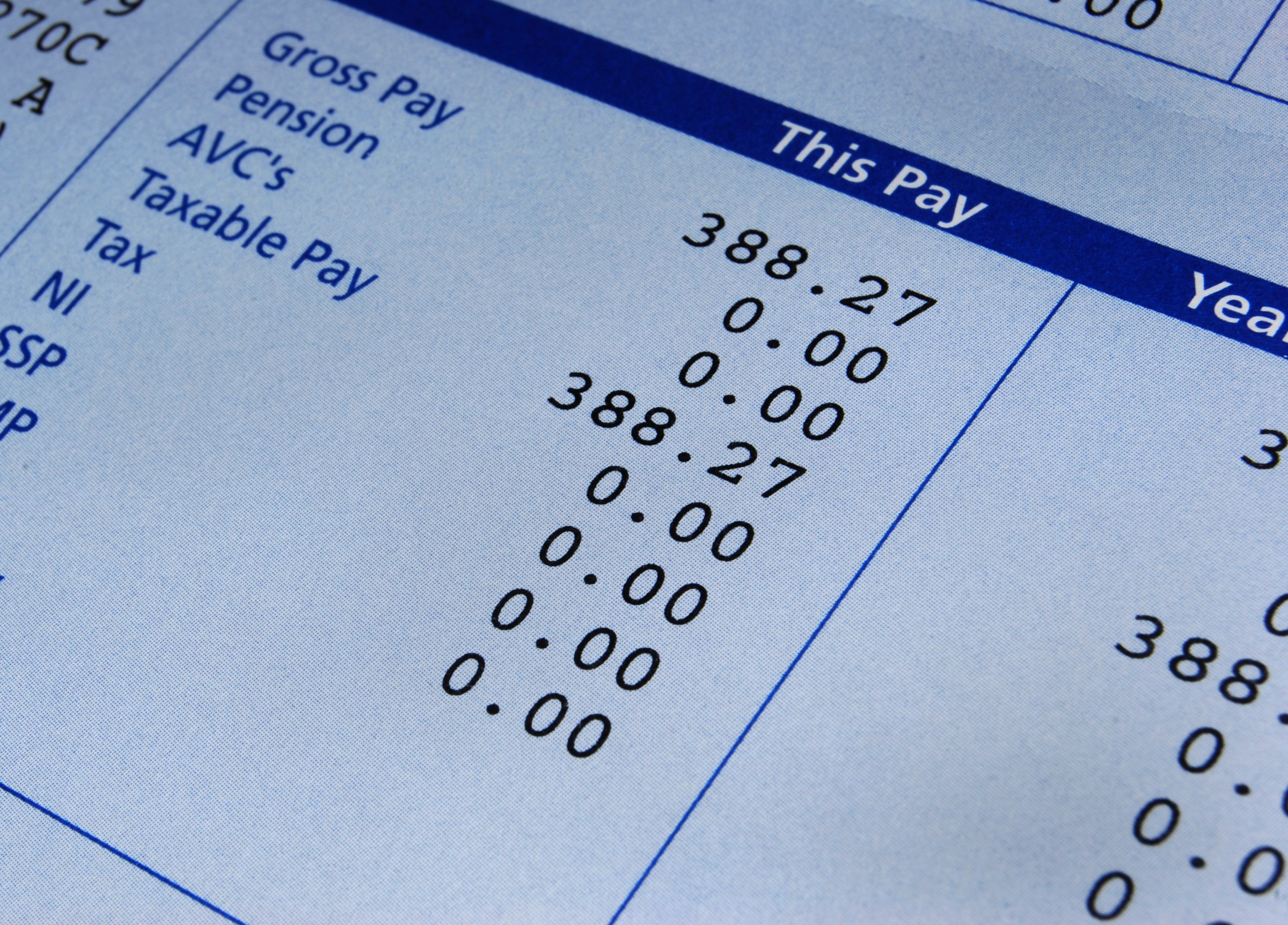

What is one of the first things you do when you start a job? You take out the calculator, work out what you think you can spend each month on rent, food, and internet, plan accordingly—and then you get your first paycheck.
The number it shows most likely isn’t the same number you expected. In fact, there are lots of numbers, codes, and acronyms all over the place; some you recognize, but many you don’t.
And while it might be tempting to think, “It’s probably all fine” and file that piece of paper away, it’s important to take a close look—not only at your first paycheck, but every one after that—and make sure you’re actually getting what you’re owed.
The Muse: The Mental Trick You Can Use To Get Through Any Stressful Situation
What’s on There?
Everyone’s paycheck is different, so it’s hard to say exactly what your paycheck will look like. But chances are, these are the items you’ll see:
Total Gross: The money you made based on the hours you’ve worked and your annual salary.
Total Net: The amount, after all taxes and deductions, that you’ll actually take home (and spend on all of the awesome things you want to do).
Hours Worked: If you are an hourly employee, this will be the exact number of hours you’ve worked. If you are salaried, it will be the hours in a normal pay period for your company (and may or may not reflect the hours you personally actually work).
Total Deductions: All of the money taken out for insurance, taxes, and more. Examples include:
Tax Withholdings
Benefits
The Muse: 5 Solid Questions You Can Always Ask At The End Of An Interview
What Should You Look For?
OK, so, that’s what you see, but what should you look for?
First, make sure everything’s correct—the hours you worked (if you’re hourly), the salary you agreed upon, and so on. It’s also important to understand all of your deductions and know how often they’re supposed to be taken out (once a month? twice a month?). This way, you can be sure your company is always taking out the right amount at the right time.
Depending on what benefits you have, the list of deductions can seem intimidating. But before you get too riled up, check to see which deductions listed are actually paid by you, the employee, and which are specified as “company-paid deductions.” If your paycheck lists company-paid deductions, you can add them up to get an idea of how your company is helping offset the cost of your benefits. This usually helps ease the pain a little. Thanks, company!
Once you have determined which benefits you, the employee, are paying for, verify that the benefits listed are the ones you selected. Be aware of the amount that you are responsible to pay for each particular benefit and confirm that this number matches what was taken out of your pay.
Finally, if you have requested any changes (e.g., you’ve changed your benefits, upped your 401(k) contribution, added a new direct deposit account, or moved to a new address), check to see they’ve gone through when you receive your paycheck.
For example, here’s something I’ve seen happen before: An employee working in her company’s New York office transfers to the California office, so she updates her address with Human Resources. When she looks at her next paycheck, she sees that both NY and CA taxes are being withheld. Turns out, HR has updated her home address but not her new work location, so she’s still having NY taxes taken out.
The Muse: 5 Brand New TED Talks That Will Inspire You To Do Better Work This Year
When you make changes, sometimes things fall through the cracks and this is typically when you will find errors on your paycheck. Speaking of which:
What Should You Do When Your Paycheck is Wrong?
Everybody makes mistakes, and payroll departments are no exception. So check your paycheck every period, and if you find an error, get it fixed ASAP. You might think, “Oh, payroll will probably go back to this later and fix it on their own” (they might) or “Meh, this is annoying; I’ll deal with this later” (you won’t).
Payroll problems are usually reversible, but the longer you wait to tell someone, the harder they are to correct. As tax quarters end, it becomes increasingly difficult to fix errors, and you may run into some problems that would have been easy to deal with if you only had addressed them earlier.
So if you do see an error, or even a tax or deduction you don’t understand, contact the appropriate go-to person at your company right away. Generally, your contact will be in your Human Resources or Payroll department, but ask your manager if you’re not sure. If your company outsources your payroll, benefits, and human resources administration, contact the outsourcing company directly—they have experts who can help you from there.
Remember—you work hard for your paycheck. So take a few minutes to make sure it’s accurate.
More Must-Reads From TIME
- The 100 Most Influential People of 2024
- Coco Gauff Is Playing for Herself Now
- Scenes From Pro-Palestinian Encampments Across U.S. Universities
- 6 Compliments That Land Every Time
- If You're Dating Right Now , You're Brave: Column
- The AI That Could Heal a Divided Internet
- Fallout Is a Brilliant Model for the Future of Video Game Adaptations
- Want Weekly Recs on What to Watch, Read, and More? Sign Up for Worth Your Time
Contact us at letters@time.com